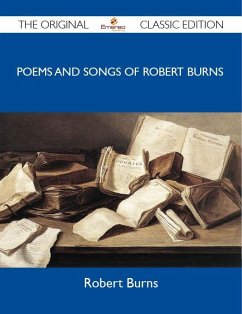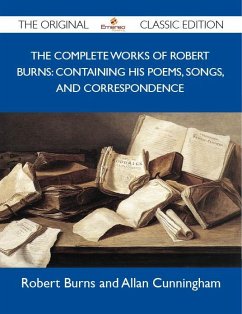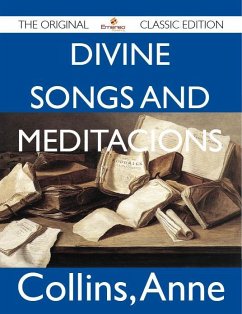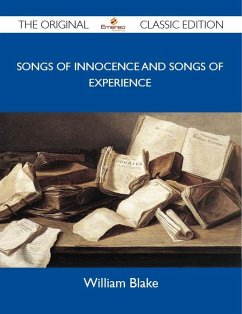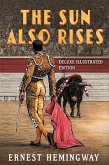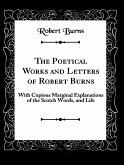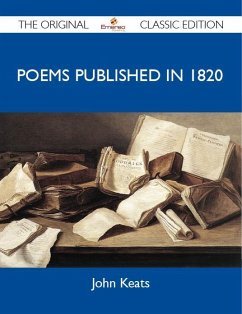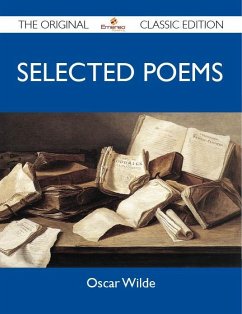Many years ago, a friend with grandparents from Scotland gave me this book as a high school graduation gift. The poems of Robert Burns, the best loved of Scotlands poets, are written in the Scots dialect, which differs significantly from Standard English. My friends grandmother once made the observation that many of the words unique to the Scots dialect strongly resembled their German counterparts. At the time I doubted her analysis, imagining that the different Scots vocabulary was due to the influence of Scottish Gaelic.
After having studied a number of ancient Germanic languages many years later, however, I came to realize that my friends grandmother was essentially correct. A study of the Scots dialect reveals more words from Old English and Old Norse (both ancient Germanic languages) than found in Standard American or British English, while the contribution of Gaelic is insignificant. Indeed in the Scots expression it gar me greet (it makes me cry) both gar and greet are of Old Norse origin. The Norse word gera corresponds to make and grata to cry or weep as can be confirmed by reference to the glossary of the Old Norse textbook An Introduction to Old Norse, the modern Icelandic dictionary Ensk- Islenzk Ordabok/English-Icelandic Dictionary, or equivalent online dictionaries.
Nevertheless, the Lowland Scots dialect is not so different from American English as to present a challenge to the literate reader. The version of this book that I own (of the same exact title as this edition) is complete with a glossary to define dialect words unfamiliar to the general reader.
Many poems familiar to the reader can be found in the volume. Auld Lang Syne and Comin Thro The Rye are among the best known. Of particular note are the poems The Cotters Saturday Night, a celebration of the common Scottish people and Tam OShanter, a story of a man who happens upon cavorting witches, one of whom is appealingly clad in a Cutty Sark (short shirt or chemise like undergarment, or nightgown).
One of the accomplishments of Burns was to compose words for traditional songs or Airs that prevented these melodies from being completely forgotten. Burns is also known to have composed a number of songs too bawdy to be widely circulated. My friends family had apparently known of handwritten copies of such poems that had been hidden away in desk drawers back in Scotland. It was also recalled that decent women got off the street when Burns was in town! Such poems are not included in this volume, at least not in their entirety. To find such poems the interested reader need only consult the web. Joe Covenants very accessible website includes a few of these poems complete with a glossary. I was particularly amused by the poem entitled Wad Ye Dae That? (Would You Do That?).
After having studied a number of ancient Germanic languages many years later, however, I came to realize that my friends grandmother was essentially correct. A study of the Scots dialect reveals more words from Old English and Old Norse (both ancient Germanic languages) than found in Standard American or British English, while the contribution of Gaelic is insignificant. Indeed in the Scots expression it gar me greet (it makes me cry) both gar and greet are of Old Norse origin. The Norse word gera corresponds to make and grata to cry or weep as can be confirmed by reference to the glossary of the Old Norse textbook An Introduction to Old Norse, the modern Icelandic dictionary Ensk- Islenzk Ordabok/English-Icelandic Dictionary, or equivalent online dictionaries.
Nevertheless, the Lowland Scots dialect is not so different from American English as to present a challenge to the literate reader. The version of this book that I own (of the same exact title as this edition) is complete with a glossary to define dialect words unfamiliar to the general reader.
Many poems familiar to the reader can be found in the volume. Auld Lang Syne and Comin Thro The Rye are among the best known. Of particular note are the poems The Cotters Saturday Night, a celebration of the common Scottish people and Tam OShanter, a story of a man who happens upon cavorting witches, one of whom is appealingly clad in a Cutty Sark (short shirt or chemise like undergarment, or nightgown).
One of the accomplishments of Burns was to compose words for traditional songs or Airs that prevented these melodies from being completely forgotten. Burns is also known to have composed a number of songs too bawdy to be widely circulated. My friends family had apparently known of handwritten copies of such poems that had been hidden away in desk drawers back in Scotland. It was also recalled that decent women got off the street when Burns was in town! Such poems are not included in this volume, at least not in their entirety. To find such poems the interested reader need only consult the web. Joe Covenants very accessible website includes a few of these poems complete with a glossary. I was particularly amused by the poem entitled Wad Ye Dae That? (Would You Do That?).
Dieser Download kann aus rechtlichen Gründen nur mit Rechnungsadresse in A, D ausgeliefert werden.

